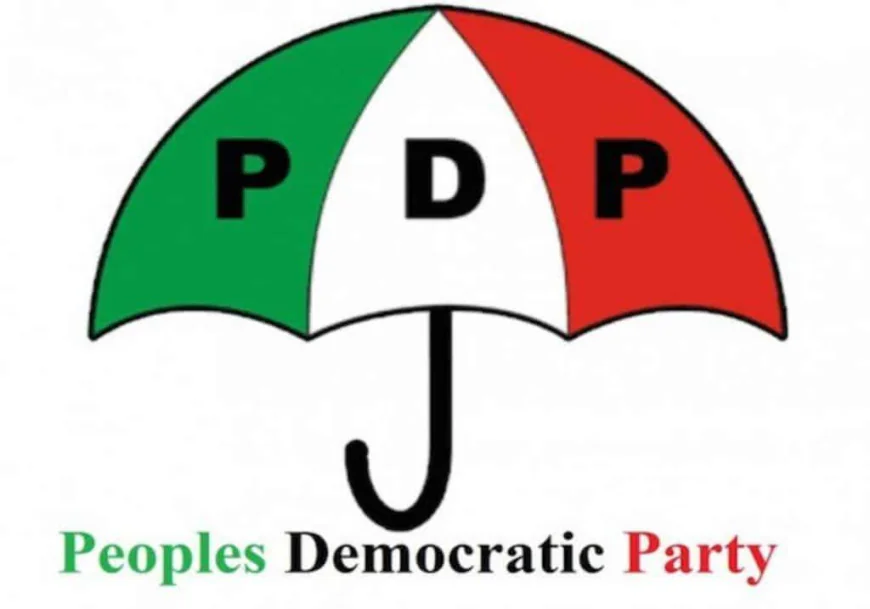2027 Polls: PDP Faces Wave of Defections in North-East as Internal Crises Deepen

As the race toward the 2027 general elections gathers momentum, the Peoples Democratic Party (PDP) is facing mounting challenges in Nigeria’s North-East, where a steady stream of defections is threatening the party’s long-standing grip on the region.
Across states like Taraba, Adamawa, Yobe, Borno, Gombe, and Bauchi, prominent members are exiting the party in protest, citing unresolved internal crises, exclusionary politics, and a disconnect between the leadership and grassroots members, DAILY POST reports.
Political observers have described the trend as a resignation wave that could significantly weaken the PDP’s influence, particularly in traditional strongholds like Taraba.
One of the most notable resignations came from Professor Jerome Nyameh, a former governorship aspirant in Taraba during the 2023 elections. In a resignation letter addressed to the PDP chairman of Zing AII Ward, Nyameh lamented the party’s internal disarray and growing alienation from its grassroots base.
“I have been a committed member since 1999, but I can no longer pretend that all is well. My supporters are disillusioned, and the leadership has failed to provide credible direction,” he stated.
Nyameh’s departure follows a series of other resignations by party loyalists, many of whom accuse the PDP of running an opaque, top-down structure that marginalizes competent voices and fails to uphold internal democracy.
In Adamawa, where the PDP still governs under Governor Ahmadu Umaru Fintiri, cracks are beginning to show. Several youth leaders and ward executives have either defected or threatened to, blaming the party for failing to recognize the efforts of grassroots mobilizers and sidelining young voices.
Although no top-tier officials have resigned publicly in the state, sources within the party say many local influencers are holding secret talks with opposition groups like the All Progressives Congress (APC) and rising third-force movements.
In Gombe, frustrations are also building. The PDP, which lost control of the state to the APC in 2019, has struggled to present a coherent opposition strategy. “The PDP here is still licking its wounds from 2019 and 2023. Unless the party reinvents itself, more people will jump ship,” said Gombe-based political analyst, Musa Abubakar.
Meanwhile in Bauchi, despite holding the governorship through Bala Mohammed, tensions are rising between the governor’s camp and the state working committee. Though party leaders downplay the rift, insiders warn that defections could follow if reconciliation efforts falter.
Analysts point to a mix of factors fueling the unrest — from allegations of manipulated primaries to leadership high-handedness and a lack of post-2023 direction.
“Many of the defectors feel abandoned. There’s no clear vision or inclusive leadership to keep them invested in the party,” a source told DAILY POST.
Sensing an opportunity, the APC is actively courting disillusioned PDP members across the North-East. A senior APC official in Taraba, who asked not to be named, confirmed that talks were ongoing with several high-profile PDP figures. “They see where the momentum is. By 2027, the political landscape will be different,” he said.
The Labour Party, NNPP, and other emerging parties are also making moves to attract defectors, positioning themselves as viable alternatives to Nigeria’s dominant parties.
While the PDP national and zonal leadership has responded with either silence or deflection, some party officials insist the situation is under control. They describe the defections as “normal political movements” and claim reconciliation efforts are underway.
However, with political realignments intensifying ahead of 2027, the PDP's ability to restore internal unity and rebuild trust at the grassroots may determine whether it remains a formidable force or continues to bleed support in what observers fear could become a slow political decline.


